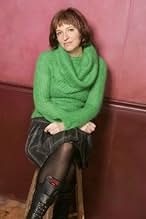NOTE IMDb
7,5/10
12 k
MA NOTE
Ajouter une intrigue dans votre langueTwo brothers must negotiate changing roles and shifting family dynamics when one is sent to war in Afghanistan.Two brothers must negotiate changing roles and shifting family dynamics when one is sent to war in Afghanistan.Two brothers must negotiate changing roles and shifting family dynamics when one is sent to war in Afghanistan.
- Réalisation
- Scénario
- Casting principal
- Récompenses
- 13 victoires et 21 nominations au total
Rebecca Løgstrup
- Camilla
- (as Rebecca Løgstrup Soltau)
Waleed Elgadi
- Samial-Tariq, Afghanistan
- (as William El-Gardi)
Avis à la une
The Danish film "Brothers" 2004 aka Brodre, w-d by Susanne Bier, is NFE (may not be for everyone). It's about love, a showdown of emotions (the opening music and repeated strains remind me of Sergio Leone's spaghetti western sounding tone). The fact that Michael ('Tour De Force' performance from Ulrich Thomsen of "The Celebration" 1998 aka Festen) keeping his traumatic experience within himself, unable to share with anyone, even his dear wife, is a sobering thought from the post-war effects. He's full of paranoia and is suspicious of everyone around him. It's so hard on him, on family members/children who do not understand what he had gone through that affected his 'warped' emotions and predicament. We cannot weather trauma alone.
As audience, we were privy to what happened to Michael as a prisoner of war - we saw what he had to experience - the circumstance and 'no-choice' decision at the time. His determined will focused on 'must stay alive to see his family and loving wife again' kept him hanging on amidst fear and uncertainty under the atrocities/ravage of war. Learning to forgive oneself - to not blame yourself - is not easy to do. What happen happened under circumstances out of your control and yes, it's easier said than done to say that you mustn't bear the burden or guilt feeling within you. We need the love and support of family/people around us - to be able to trust them that they would listen and understand.
Connie Nielsen as Michael's wife Sarah and Nikolaj Lie Kaas as Michael's younger brother, Jannik, provided an insightful portrait of the triangle of relationships that thrived and yet to survive. In the opening of the film, Bier has on screen along with intriguing graphic imagery and an eye close-up: "I will always love you. That is the only truth that remains. Life is neither right nor wrong, good or bad. But I love you. That's all I know." Towards the end, the graphic imagery and the eye repeated: "Life is neither right nor wrong, good or bad. But I love you. That's all I know."
I caught on Sundance Channel, Dutch documentary filmmaker Heddy Honigmann's "Crazy" 2000, provides 'unpresuming' accounts of how some of the once Dutch soldiers or former workers of UN missions, are dealing with post-war effects by listening or tuning to music as relief. She also did "Good Husband, Dear Son" 2001, a documentary about the surviving women reminiscing their loss of husbands and sons during the 1992 Yugoslav civil war. It's heart-breaking films worth watching.
From the PBS special of Dr. Wayne Dyer's Inspiration: Your Ultimate Calling, I heard about Immaculée Ilibagiza's book (collaborated with writer-journalist Steve Erwin) "Left To Tell: Discovering God Amidst the Rwandan Holocaust" - sounds like the act of forgiveness can be easier to practice by learning from her autobiographical account. Couldn't wait to absorb from her shared spirituality.
As audience, we were privy to what happened to Michael as a prisoner of war - we saw what he had to experience - the circumstance and 'no-choice' decision at the time. His determined will focused on 'must stay alive to see his family and loving wife again' kept him hanging on amidst fear and uncertainty under the atrocities/ravage of war. Learning to forgive oneself - to not blame yourself - is not easy to do. What happen happened under circumstances out of your control and yes, it's easier said than done to say that you mustn't bear the burden or guilt feeling within you. We need the love and support of family/people around us - to be able to trust them that they would listen and understand.
Connie Nielsen as Michael's wife Sarah and Nikolaj Lie Kaas as Michael's younger brother, Jannik, provided an insightful portrait of the triangle of relationships that thrived and yet to survive. In the opening of the film, Bier has on screen along with intriguing graphic imagery and an eye close-up: "I will always love you. That is the only truth that remains. Life is neither right nor wrong, good or bad. But I love you. That's all I know." Towards the end, the graphic imagery and the eye repeated: "Life is neither right nor wrong, good or bad. But I love you. That's all I know."
I caught on Sundance Channel, Dutch documentary filmmaker Heddy Honigmann's "Crazy" 2000, provides 'unpresuming' accounts of how some of the once Dutch soldiers or former workers of UN missions, are dealing with post-war effects by listening or tuning to music as relief. She also did "Good Husband, Dear Son" 2001, a documentary about the surviving women reminiscing their loss of husbands and sons during the 1992 Yugoslav civil war. It's heart-breaking films worth watching.
From the PBS special of Dr. Wayne Dyer's Inspiration: Your Ultimate Calling, I heard about Immaculée Ilibagiza's book (collaborated with writer-journalist Steve Erwin) "Left To Tell: Discovering God Amidst the Rwandan Holocaust" - sounds like the act of forgiveness can be easier to practice by learning from her autobiographical account. Couldn't wait to absorb from her shared spirituality.
The movie is filmed mostly with hand held camera, and the technical quality is not the best. I am normally not a fan of these so called "Dogme" movies, but it gives the opportunity to tell a story with a small budget and without having to waste time on special effects and so on. And what a movie. The actors play so intense and fascinatingly well, that I often sat on the edge of the seat, had "goose bumps"(gaasehud), wept like whipped(graed som pisket). The cutting is also very special and interesting. For instance a scene, where representatives of the military arrives to tell Sarah, that her husband is missing, it is cut right before they tell her the bad news. It gives a good effect. I would also like to welcome Connie Nielsen to the staff of fantastic Danish actors(her first danish movie) and will look forward to possibly/eventually watch/experience her great magic i a Danish movie again. I must write her a fan letter(my first).
Brothers (2004)
A remarkable movie in several ways. The first is just that it's well made, with two main layers of story line that are compelling, and some surprising and mostly believable turns. The second is that we (in the U.S.) have a look at the war in Afghanistan from non-American eyes. The echoes are inevitable, and so are the differences, in attitude by the soldiers and in public reaction.
The lead actor Ulrich Thomsen is compelling and versatile, and in some ways makes the movie. His range (which you have to see for yourself or you'll be tipped off) is terrific. His wife, played by better known Connie Nielsen (in her first Danish movie, even though she is Danish herself, and knows seven languages) is perfect, too, though she plays someone who is admittedly "boring" and so has less range. Finally, the lead man's brother, Nikolaj Lie Kaas, is charming and a wild card, making the trio appropriately imbalanced.
I say all this because it's an acting movie, and a movie about relationships and therefore about plot. It's not a war movie, but more about the effects of war. It's recommended for people who have absorbed American movies like The Hurt Locker. But more than that, it's just a well made, emotional, human interest film. There are a couple flaws (including the key part about the helicopter crash, which just doesn't hold up to common sense), but they are small in the larger, gritty realism of the whole.
A remarkable movie in several ways. The first is just that it's well made, with two main layers of story line that are compelling, and some surprising and mostly believable turns. The second is that we (in the U.S.) have a look at the war in Afghanistan from non-American eyes. The echoes are inevitable, and so are the differences, in attitude by the soldiers and in public reaction.
The lead actor Ulrich Thomsen is compelling and versatile, and in some ways makes the movie. His range (which you have to see for yourself or you'll be tipped off) is terrific. His wife, played by better known Connie Nielsen (in her first Danish movie, even though she is Danish herself, and knows seven languages) is perfect, too, though she plays someone who is admittedly "boring" and so has less range. Finally, the lead man's brother, Nikolaj Lie Kaas, is charming and a wild card, making the trio appropriately imbalanced.
I say all this because it's an acting movie, and a movie about relationships and therefore about plot. It's not a war movie, but more about the effects of war. It's recommended for people who have absorbed American movies like The Hurt Locker. But more than that, it's just a well made, emotional, human interest film. There are a couple flaws (including the key part about the helicopter crash, which just doesn't hold up to common sense), but they are small in the larger, gritty realism of the whole.
"Brothers (Brødre)" is a Danish "Coming Home" crossed with "Deer Hunter" and the novels of Tim O'Brien with the added frisson of Cain vs. Abel, as updated to the war on terrorism in Afghanistan.
While I can understand how this is a new experience for Danes, it could have more impact for someone who has never seen a post-Viet Nam War movie. Otherwise it's like a fairly predictable cable TV movie about post traumatic stress syndrome on a channel that allows four letter words, including as has been done in British television films about returning peacekeepers from the Balkans.
The excellent acting rose above the stereotypes to make it very moving anyway, including very natural child actors who were very un-Dakota Fanning-like.
Nikolaj Lie Kaas is particularly charismatic on screen, even more than he was in "Reconstruction," and should now be in the international pantheon of rugged male stars who play "bad boys" really well, emphasized by portraying brunettes in the land of the blonds. So I give director/co-writer Susanne Bier extra credit for not fulfilling the most obvious direction of the plot, but instead letting tension hang in the air, which is more powerful.
Connie Nielsen, using her native language, has warm and charged chemistry with both her co-stars, but is pretty much just the beautiful wife/mother.
Unfortunately, the distributors didn't spring for American English subtitles so you have to interpret Brit slang as if you're watching BBC America. (I did learn in one instance that the F word sounds pretty much the same in Danish as in English but the subtitles didn't match that sound again so I was wondering what other curse words were being replaced with the fundamental English one.) Some times the translation is just plain confusing; for example, the word "assaulted" seems to have a different connotation than something in the Danish dialog, as a plot point gets confused for a subtitle reader. The translation is particularly a problem during a critical scene where the older girl has an outburst, as it's quizzical how scatological her terms were in Danish as opposed to the English choices to understand how incendiary the scene really is.
The Afghans are uniformly shown with the same level of subtlety as North Vietnamese, let alone Nazis, in prisoner-of-war movies. It is ironically interesting that English is now the lingua franca between freedom fighters everywhere.
The cinematography is beautifully color saturated, but is grainy; perhaps it's blown up from video.
While I can understand how this is a new experience for Danes, it could have more impact for someone who has never seen a post-Viet Nam War movie. Otherwise it's like a fairly predictable cable TV movie about post traumatic stress syndrome on a channel that allows four letter words, including as has been done in British television films about returning peacekeepers from the Balkans.
The excellent acting rose above the stereotypes to make it very moving anyway, including very natural child actors who were very un-Dakota Fanning-like.
Nikolaj Lie Kaas is particularly charismatic on screen, even more than he was in "Reconstruction," and should now be in the international pantheon of rugged male stars who play "bad boys" really well, emphasized by portraying brunettes in the land of the blonds. So I give director/co-writer Susanne Bier extra credit for not fulfilling the most obvious direction of the plot, but instead letting tension hang in the air, which is more powerful.
Connie Nielsen, using her native language, has warm and charged chemistry with both her co-stars, but is pretty much just the beautiful wife/mother.
Unfortunately, the distributors didn't spring for American English subtitles so you have to interpret Brit slang as if you're watching BBC America. (I did learn in one instance that the F word sounds pretty much the same in Danish as in English but the subtitles didn't match that sound again so I was wondering what other curse words were being replaced with the fundamental English one.) Some times the translation is just plain confusing; for example, the word "assaulted" seems to have a different connotation than something in the Danish dialog, as a plot point gets confused for a subtitle reader. The translation is particularly a problem during a critical scene where the older girl has an outburst, as it's quizzical how scatological her terms were in Danish as opposed to the English choices to understand how incendiary the scene really is.
The Afghans are uniformly shown with the same level of subtlety as North Vietnamese, let alone Nazis, in prisoner-of-war movies. It is ironically interesting that English is now the lingua franca between freedom fighters everywhere.
The cinematography is beautifully color saturated, but is grainy; perhaps it's blown up from video.
We all know that American cinema can't help itself to do remake of foreign films... That's why i saw Brothers before this original danish movie. When in this one all appears to be shot in steady cam, the American way tries to put some melodramatic trigger.
This version is about feelings, about situation and personal change: life make us evolve like every decision we take and nothing is good or bad, there is a lot of in between. The chose to accumulate the short shootings, practically no music or just a few notes on one instrument,are trying to bring us along this day to day story really well interpreted. The characters in their flaws or every day basis are believable, there is not so much emphasis like in the good but too much American film. It's in their nature to modify, adjust the deepness of the movie and after seeing this 2004 version, we actually miss something: this authenticity.
In both versions, dialogs, ellipses are exactly the same, but characters turned out to be different. We actually have to exact opposite films and this is a real challenge to see both.
This version is about feelings, about situation and personal change: life make us evolve like every decision we take and nothing is good or bad, there is a lot of in between. The chose to accumulate the short shootings, practically no music or just a few notes on one instrument,are trying to bring us along this day to day story really well interpreted. The characters in their flaws or every day basis are believable, there is not so much emphasis like in the good but too much American film. It's in their nature to modify, adjust the deepness of the movie and after seeing this 2004 version, we actually miss something: this authenticity.
In both versions, dialogs, ellipses are exactly the same, but characters turned out to be different. We actually have to exact opposite films and this is a real challenge to see both.
Le saviez-vous
- AnecdotesAlong with Kongekabale (2004), this was the most successful and best reviewed Danish film of the year in its native country. However, neither of these two films was submitted by Denmark to the Oscars in the Foreign Language Film category. The Danish jury decided to send a documentary film, Five Obstructions (2003), which had only been attended by 12,532 people in Danish theaters. This story made headlines, and Danish film producers officially stated that they would force the jury to pick Brothers (2004) or "Kongekabale" instead. The jury, however, did not change their minds, and "De fem benspænd" was sent to the Oscars. It was not among the eventual nominees. "Brødre" later won several awards across the world, including at the Sundance Film Festival, and opened to stellar reviews in the US. The jury later admitted that they possibly chose the wrong film to send to the Oscars that year.
- GaffesSarah's pink scarf disappears and reappears several times in one of the scenes in the kitchen.
- ConnexionsFeatured in Dansk films bedste: Skurke, Dialekter og Forbudt kærlighed (2022)
Meilleurs choix
Connectez-vous pour évaluer et suivre la liste de favoris afin de recevoir des recommandations personnalisées
- How long is Brothers?Alimenté par Alexa
Détails
- Date de sortie
- Pays d’origine
- Sites officiels
- Langue
- Aussi connu sous le nom de
- Брати
- Lieux de tournage
- Sociétés de production
- Voir plus de crédits d'entreprise sur IMDbPro
Box-office
- Montant brut aux États-Unis et au Canada
- 389 220 $US
- Week-end de sortie aux États-Unis et au Canada
- 8 161 $US
- 8 mai 2005
- Montant brut mondial
- 489 706 $US
- Durée1 heure 57 minutes
- Couleur
- Mixage
- Rapport de forme
- 1.85 : 1
Contribuer à cette page
Suggérer une modification ou ajouter du contenu manquant
































